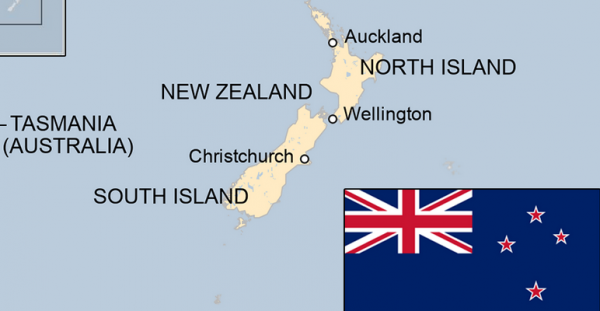New Zealand's Cabinet Approves Measures to Regulate Online Casino Gambling
New Zealand's Cabinet recently approved measures to regulate online casino gambling. This significant move aims to address concerns surrounding online gambling in the country. The decision marks a significant shift in the country's approach to online gambling, which has been a topic of debate in recent years.
The new regulations are designed to enhance consumer protection, promote responsible gambling, and ensure that online gambling operators comply with strict standards and regulations.
Here is an in-depth look at the key aspects of these measures and their potential impact on the online gambling industry in New Zealand.
Background
Online gambling has gained popularity worldwide, including in New Zealand. The country has a growing number of individuals willing to participate in online casino games and betting activities.
However, there have been concerns about the lack of regulation and oversight in this sector. This could lead to potential risks for consumers, such as problem gambling, financial loss, and lack of transparency in operations. Here are a few of the key measures for regulating online casino gambling in New Zealand.
Licensing and Regulation
Licensing is essential for ensuring that operators abide by industry standards. Under the new measures, online casino operators offering real money gaming will be required to obtain a license from the New Zealand government to offer their services to local residents.
This licensing process will involve rigorous checks and assessments to ensure that operators meet the necessary standards in terms of security, fairness, and responsible gambling practices.
Licensing Criteria
The licensing criteria will include factors such as the operator's financial stability and technical capabilities. It will also cover measures to prevent money laundering, responsible gambling policies, and adherence to regulatory requirements. Applicants must demonstrate their ability to provide a safe and secure gambling environment for players.
Regulatory Oversight
Once licensed, operators will be subject to ongoing regulatory oversight to ensure compliance with the established standards. This may involve regular audits, reporting requirements, and monitoring of gambling activities to detect any irregularities or violations.
Penalties for Non-Compliance
Strict penalties will be imposed on operators that fail to comply with regulatory obligations or engage in unethical practices. They may include fines, suspension, or revocation of licenses.
Consumer Protection
The regulations will focus on enhancing consumer protection measures. They will include age verification procedures to prevent minors from accessing online gambling sites.
Additionally, operators will be required to provide clear and transparent information about the risks associated with gambling, and resources for players seeking help with gambling-related issues.
Age Verification
Online casinos will implement strict age verification processes to ensure that only players of legal gambling age can access their platforms. This may involve identity verification checks using official documents such as passports or driver's licenses.
Information and Support
Operators will be obligated to provide comprehensive information about responsible gambling practices, including tips for safe gaming, warning signs of problem gambling, and contact details for support organizations. This information will be prominently displayed on their websites and in marketing materials.
Dispute Resolution
The regulations may also include mechanisms for resolving disputes between players and operators. They may include independent mediation or arbitration services to address issues like delayed payments, unfair game outcomes, or account discrepancies.
Responsible Gambling Initiatives
Online casino operators will be mandated to implement responsible gambling initiatives, such as self-exclusion tools, spending limits, and access to support services for players experiencing gambling problems. These measures aim to promote responsible gaming behavior and reduce the potential harms associated with excessive gambling.
Self-Exclusion
Players will have the option to self-exclude from gambling activities for a specified period. During this period, they will be unable to access their accounts or participate in gambling activities. This helps players take a break from gambling if they feel it is becoming problematic.
Spending Limits
Operators will offer tools for players to set spending limits on their accounts. They can control the amount of money they can wager within a given timeframe. This helps prevent excessive losses and encourages responsible budgeting for gambling activities.
Support Services
Online casinos will provide links or information about support services. These include helplines, counseling resources, and self-help materials, for players seeking assistance with gambling addiction or related issues.
Taxation and Revenue Generation
The new regulations will also address taxation and revenue generation from online gambling activities. Licensed operators will be required to pay taxes on their profits, contributing to government revenue while ensuring a level playing field for all operators in the market.
Tax Rates
The government will establish tax rates applicable to online gambling operators. They may vary based on factors like the revenue generated, types of games offered, and the operator's compliance with regulatory requirements.
Revenue Allocation
The tax revenue generated from online gambling will be allocated to purposes such as funding for public services, support for responsible gambling initiatives, and contributions to problem gambling prevention and treatment programs.
Market Competition
Taxation of online gambling activities ensures that licensed operators compete on a fair basis. Unlicensed or offshore operators may not be subject to the same tax obligations, creating an uneven playing field.
Impact on the Industry
The approval of these measures is expected to have a significant impact on the online gambling industry in New Zealand. While it will bring about stricter regulatory requirements for operators, it also presents opportunities for reputable and compliant companies to enter the market and operate legally.
The regulations will help protect consumers from potential risks associated with online gambling, such as fraud, addiction, and unfair practices. The government aims to minimize the negative impact of gambling and encourage safe gaming behavior by implementing responsible gambling initiatives.
The taxation of online gambling activities will contribute to government revenue, which can be allocated to various public services and initiatives.
While the new regulations are a step towards addressing the challenges associated with online gambling, they also pose certain challenges and considerations. For instance, operators must ensure effective enforcement of the regulations and monitor compliance for the success of the regulatory framework.
Online casino operators will need to adapt to the new regulatory requirements, which may involve changes in business practices and additional costs related to compliance.
- Alistair Prescott, Gambling911.com














